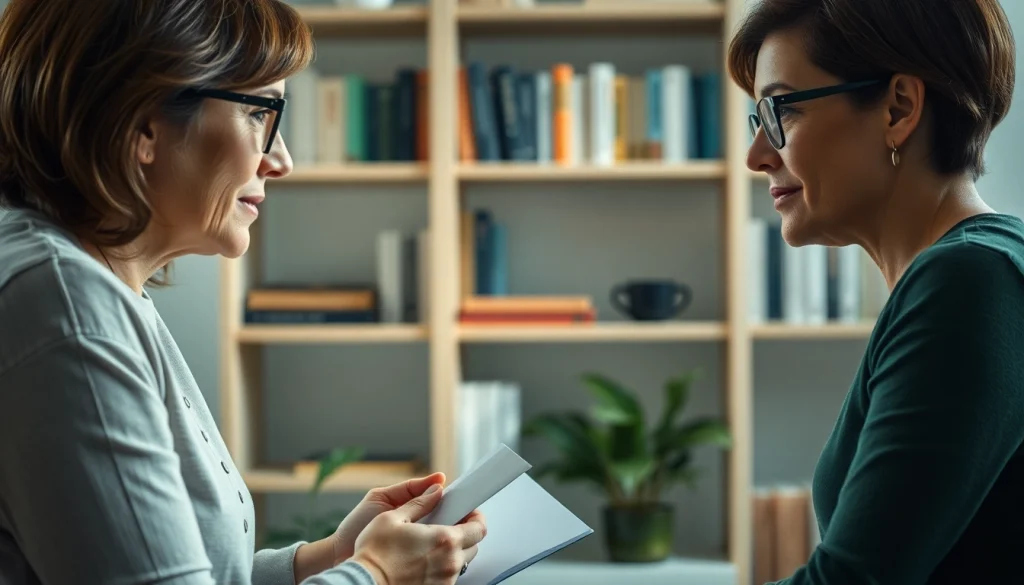Understanding the Role of an Attachment Theory Specialist in Healing Relationships

Introduction to Attachment Theory
Attachment Theory is a psychological framework that explains how early relationships with caregivers shape a person’s emotional and social development. Understanding this concept is essential for anyone interested in the dynamics of relationships and emotional well-being. When it comes to seeking guidance, working with an attachment theory specialist can provide invaluable insight and therapeutic support.
Definition and Importance of Attachment Theory
At its core, Attachment Theory posits that the emotional bonds formed in early childhood impact the way individuals interact in their adult relationships. Developed by John Bowlby and expanded upon by Mary Ainsworth, this theory emphasizes the importance of secure attachments in childhood and how those bonds influence emotional health throughout one’s lifespan. The significance lies in recognizing that inadequate or disrupted attachments can lead to various emotional and relational challenges.
Key Concepts Related to Attachment Styles
Attachment styles are typically categorized into four main types:
- Secure Attachment: Characterized by trust in relationships, comfort with intimacy, and a balanced approach to both dependence and independence.
- Anxious Attachment: Marked by concerns over abandonment, excessive worry about relationships, and a tendency to seek validation and reassurance from partners.
- Avoidant Attachment: Defined by emotional distance, discomfort with closeness, and a tendency to downplay the importance of relationships.
- Disorganized Attachment: A combination of anxious and avoidant behaviors, often stemming from trauma, leading to confusion in relationships.
Understanding these attachment styles can help individuals and couples navigate their emotional needs and behaviors in relationships.
How Attachment Theory Influences Relationships
Individuals carry their attachment styles into their adult relationships, affecting their interactions and emotional connections. A person with a secure attachment style is likely to engage in healthy, trusting relationships, while someone with an anxious or avoidant style may struggle with commitment or emotional intimacy. Recognizing and addressing these patterns can foster healthier, more satisfying relationships.
What Does an Attachment Theory Specialist Do?
Roles and Responsibilities of a Specialist
An attachment theory specialist primarily focuses on helping clients understand their attachment styles and how these influence their relationships. This specialist works collaboratively with individuals or couples to explore attachment histories, identify problematic patterns, and develop strategies for healthier interactions.
Therapeutic Approaches Used by Specialists
Attachment theory specialists employ a range of therapeutic modalities, including:
- Emotionally Focused Therapy (EFT): A method that focuses on improving emotional responsiveness and developing secure attachments within relationships.
- Cognitive Behavioral Therapy (CBT): A technique that helps individuals identify and change negative thought patterns associated with attachment issues.
- Attachment-based Therapy: A direct application of attachment theory principles in therapy to foster secure attachment and relationship repair.
Benefits of Seeking an Attachment Theory Specialist
Engaging with an attachment theory specialist can provide numerous benefits, such as:
- Increased Self-awareness: Clients develop a better understanding of their emotional needs and responses.
- Improved Relationship Dynamics: By understanding attachment styles, clients can improve their interactions with others.
- Enhanced Coping Strategies: Specialists help individuals cultivate healthier emotional responses and techniques for managing conflict.
Identifying Challenges Addressed by Attachment Theory Specialists
Common Emotional and Relationship Issues
Attachment theory specialists address a variety of emotional and relationship challenges, including:
- Fear of abandonment or rejection
- Difficulty forming and maintaining intimate relationships
- Inability to express or manage emotions effectively
- Chronic conflict in romantic or familial relationships
How Attachment Style Affects Mental Health
A person’s attachment style can significantly influence their mental health. For instance, those with anxious attachments may experience heightened anxiety and depression, while individuals with avoidant attachments often struggle with feelings of loneliness and dissatisfaction. By addressing these underlying attachment issues, clients can work toward improved mental wellness.
Case Studies of Successful Outcomes
Consider the case of a couple struggling with communication. Through therapy with an attachment theory specialist, they discovered that one partner had an anxious attachment style, which led to combative communication driven by fear of abandonment. By understanding this dynamic, they were able to develop better communication strategies and cultivate reassurance without conflict. Similar success stories illustrate the transformative potential of attachment-focused therapy.
Finding the Right Attachment Theory Specialist
Criteria for Choosing a Specialist
When selecting an attachment theory specialist, consider the following criteria:
- Qualifications: Look for licensed professionals with experience in attachment theory and relational therapies.
- Therapeutic Approach: Ensure the specialist employs therapeutic modalities that resonate with you.
- Reviews and Testimonials: Check for reviews and testimonials from previous clients to gauge effectiveness.
Questions to Ask During Initial Consultations
To ensure you choose the right specialist, ask questions such as:
- What is your experience with attachment theory?
- What therapeutic approaches do you utilize when working with clients?
- How do you tailor therapy to address individual attachment styles?
Resources for Locating Specialists
Finding a qualified attachment theory specialist can be done through various resources including:
- Professional directories (e.g., Psychology Today)
- Referrals from other healthcare professionals
- Support groups and community resources focused on mental health and well-being
Transformative Impact of Attachment Theory in Therapy
Long-term Benefits of Attachment Therapy
Long-term engagement with attachment therapy can lead to profound changes such as improved emotional regulation, enhanced self-esteem, and stronger relationship connections. Clients often emerge with tools to foster healthy attachments, leading to sustained emotional wellness.
Measuring Success with an Attachment Theory Specialist
Success in therapy can be measured through various indicators including:
- Reduction in symptoms of anxiety or depression
- Improved relationship satisfaction and communication
- Increased confidence in interpersonal skills
Continued Growth and Support After Therapy
Even after formal therapy concludes, ongoing personal development is crucial. An attachment theory specialist may provide tools for continued growth, such as workshops, support groups, or literature to further enhance one’s understanding and practice of healthy attachment.






